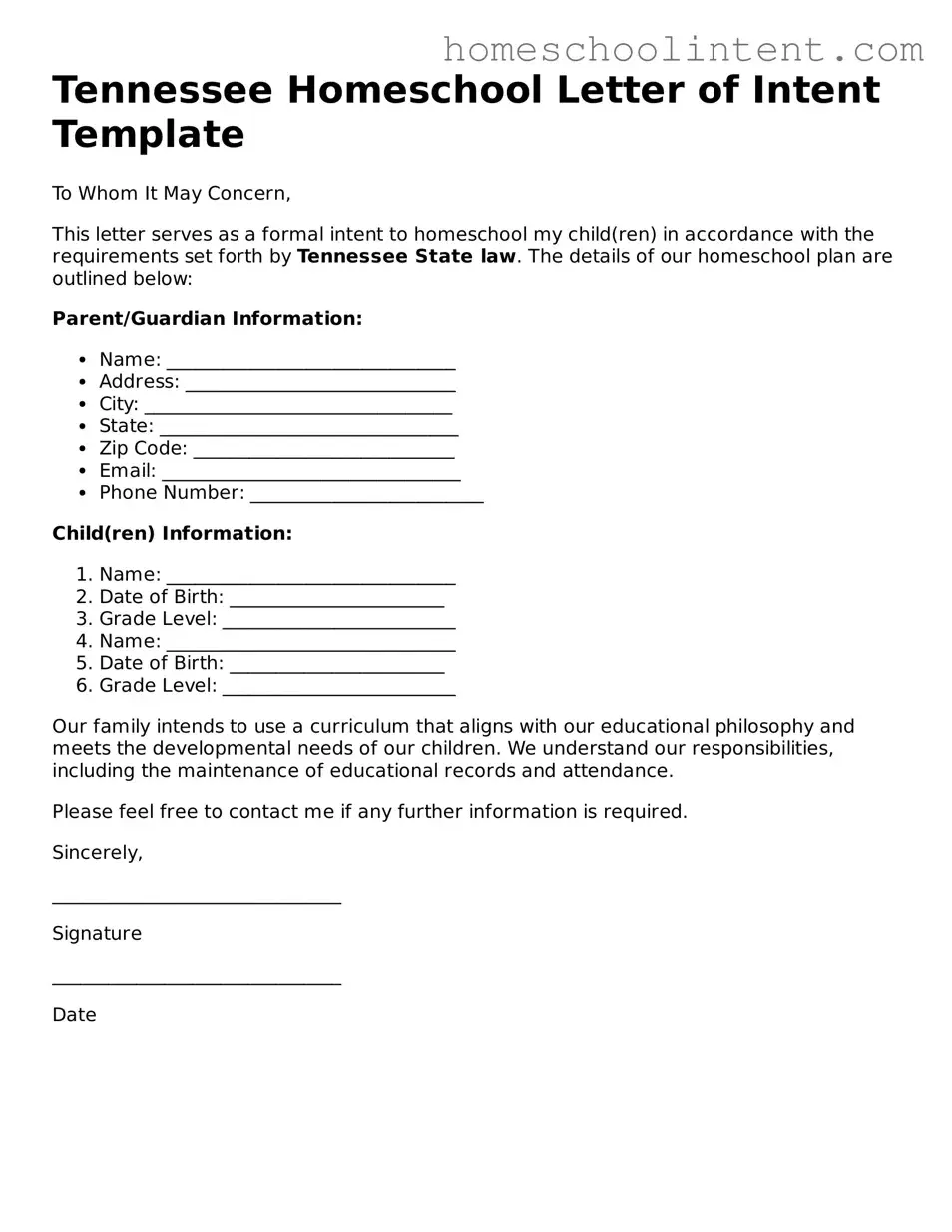Documents used along the form
When families in Tennessee decide to homeschool their children, they must complete and submit a Homeschool Letter of Intent. This document serves as a formal notification to the local education authority that a parent or guardian intends to educate their child at home. However, this letter is just one part of the homeschooling process. Several other documents and forms often accompany the Letter of Intent to ensure compliance with state regulations and to facilitate a smooth homeschooling experience.
- Educational Plan: This document outlines the curriculum and educational goals for the homeschooling year. It typically includes subjects to be taught, resources to be used, and methods of assessment. Having a clear plan helps parents stay organized and provides a roadmap for their child's education.
- Attendance Records: Keeping a log of daily attendance is important for homeschoolers. This record shows the days and hours of instruction and can be helpful if questions arise regarding compliance with state requirements. It also serves as a useful tool for evaluating the child’s educational progress over time.
- Progress Reports: These reports summarize a student's achievements and areas for improvement. They can include test scores, completed assignments, and overall performance evaluations. Regular progress reports help parents assess their child’s learning and make necessary adjustments to the educational plan.
- Portfolio: A portfolio is a collection of a student's work that showcases their learning journey. It may include samples of assignments, projects, and assessments. This document can serve as a valuable resource during evaluations or if the family decides to transition back to traditional schooling.
In summary, while the Tennessee Homeschool Letter of Intent is a crucial first step in the homeschooling process, it is essential to prepare and maintain additional documents such as an Educational Plan, Attendance Records, Progress Reports, and a Portfolio. Together, these materials not only help ensure compliance with state laws but also enhance the educational experience for both parents and students.
